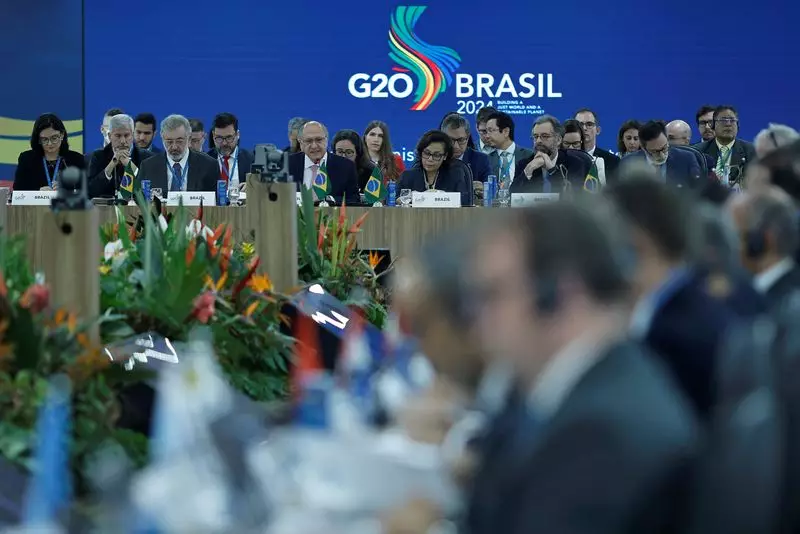At a recent meeting in Brasilia, G20 ministers from the world’s largest economies catalyzed a significant step forward by emphasizing the interconnectedness of international trade and sustainable development. This ambitious vision rests on the premise that economic growth must be inclusive and mindful of social and environmental responsibilities. By prioritizing sustainable practices, the G20 aims not only to bolster economic frameworks but also to forge a pathway for marginalized groups, particularly women, to participate actively in global trade.
A central point of discussion revolved around the urgency of reforming the World Trade Organization (WTO). Vice President and Trade Minister of Brazil, Geraldo Alckmin, articulated a collective vision for a more responsive, streamlined, and efficient conflict resolution mechanism within the organization. The G20 ministers underscored the importance of fostering a multilateral trading system that operates on the principles of fairness, transparency, and inclusivity.
These reforms aim to address long-standing grievances regarding bureaucratic inefficiencies and to create a framework that can swiftly adapt to the rapidly changing global economic landscape. The consensus reached among the G20 nations highlights a shared commitment to ensuring that the WTO remains at the heart of international trade, thereby enhancing its efficacy and resilience.
Historically, the G20 has neglected the issue of gender inclusivity in trade discussions. However, this meeting marked a transformative shift towards embedding the participation of women as a core principle. President Luiz Inacio Lula da Silva’s insistence on addressing this issue demonstrates a broader recognition of the vital role women play in economic development. By acknowledging and promoting women’s participation in international trade, the G20 ministers not only foster gender equality but also harness a wealth of untapped economic potential.
This pioneering approach reflects a global shift towards acknowledging diversity as an asset rather than a hurdle in trade negotiations. The implications for women’s economic empowerment are substantial, and this new focus could lead to significant breakthroughs in achieving gender parity in international markets.
Brazil’s commitment to combat climate change was evident in the proposals put forth during the G20 meeting. As the host nation for the upcoming COP30 climate talks, Brazil’s agenda included calls for trade and investments that support sustainable economic development. The consensus on integrating climate consciousness into trade discussions signals an important recognition of the intricate relationship between environmental sustainability and economic prosperity.
Leaders of the G20 explicitly acknowledged the need for a balanced approach that harmonizes economic growth with environmental protection. This perspective is critical, especially as nations strive to address pressing global challenges such as climate change, resource depletion, and biodiversity loss.
Despite a successful meeting, the G20 ministers faced challenges in navigating sensitive geopolitical topics, particularly concerning the situations in Russia, Ukraine, and Gaza. While some members pushed for open discussions about these contentious issues, others argued that it was beyond the G20’s purview. The ability to find common ground on these divisive matters indicates the delicate balance that the G20 must maintain as it seeks unity in diverse perspectives.
The G20 ministers’ gathering in Brasilia marked a pivotal moment in international trade discussions, focusing on sustainable development, the urgency of WTO reform, and the inclusion of women. Moreover, their commitment to addressing climate change highlights a progressive shift toward a more responsible and equitable global economic system. As the G20 prepares for its upcoming summit in November, the outcomes of this meeting will lay the groundwork for transformative policy initiatives shaping the future of international trade.

